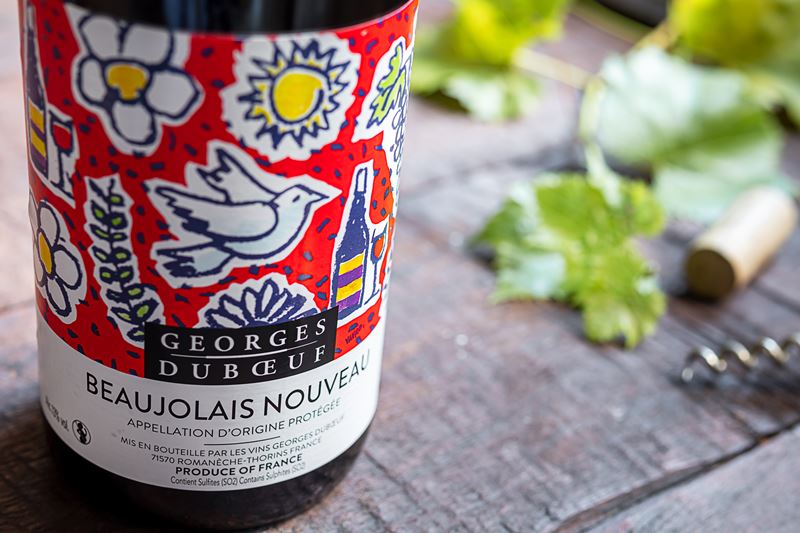
In a dramatic turn of taste, the British palate is evolving, waving goodbye to the once-beloved Merlot and welcoming with open arms the lighter, more vibrant notes of Beaujolais. This shift, echoing a trend that took the American market by storm two decades ago, is reshaping the landscape of wine sales in UK bars and restaurants. The seismic change in preference is not just a tale of changing tastes but a narrative intertwined with economic pressures, a quest for quality, and a nod to the lighter side of the vinous spectrum.
The cultural impact of the 2004 comedy "Sideways" is undeniable. With a single line of dialogue, it managed to sway American consumers away from Merlot, causing a noticeable dip in sales. Fast forward twenty years, and it seems the UK is having its own "Sideways" moment, albeit without the Hollywood catalyst. Instead, the shift appears driven by a broader change in consumer preferences towards lighter red wines.
Beaujolais, made predominantly from the Gamay grape, is witnessing a renaissance in the UK. With sales surging by 35% since 2019 in high-end establishments, it's clear that Brits are gravitating towards this more delicate and refreshing style of red wine. This trend is likely buoyed by the escalating prices of Burgundy wines, with consumers finding both quality and value in Beaujolais that Burgundy now often lacks due to its premium pricing.
The backdrop to this shift in wine preference is a complex tapestry of economic and social changes. The UK's on-trade wine sales have been hit hard, not just by changing tastes but by a perfect storm of inflation, economic downturn, labor shortages, and the lingering effects of the pandemic. People are spending less time in traditional social venues like pubs, partly due to a rise in remote work and the ongoing cost-of-living crisis.
Despite these challenges, certain segments of the wine market are thriving. Premium establishments have seen a resurgence in sales, particularly for Champagne, signaling that consumers are still willing to indulge in luxury experiences. Supermarkets and wine stores are also benefiting, capturing a larger share of the market as more consumers opt to enjoy quality wines at home.
While Beaujolais stars in this narrative, other lesser-known varietals are also gaining traction. Nebbiolo, Corvina, and Barbera are seeing increased popularity, reflecting a broader appetite for diversity and exploration among wine drinkers. This enthusiasm extends beyond red wines, with Riesling, Semillon, Viognier, and Grüner Veltliner all experiencing growth, indicating a widespread shift towards more unique and esoteric choices.
As the UK wine market continues to navigate through turbulent times, the rise of Beaujolais and the decline of Merlot signify more than just a change in taste; they reflect a deeper evolution in consumer behavior and market dynamics. With economic pressures looming large, the quest for value, quality, and novel experiences is shaping the future of wine consumption in the UK. As we look ahead, the resilience of the premium segment and the adventurous spirit of British wine drinkers suggest that, despite challenges, the wine industry can still find reasons to toast to the future.
Founded in 2007, Vinetur® is a registered trademark of VGSC S.L. with a long history in the wine industry.
VGSC, S.L. with VAT number B70255591 is a spanish company legally registered in the Commercial Register of the city of Santiago de Compostela, with registration number: Bulletin 181, Reference 356049 in Volume 13, Page 107, Section 6, Sheet 45028, Entry 2.
Email: [email protected]
Headquarters and offices located in Vilagarcia de Arousa, Spain.